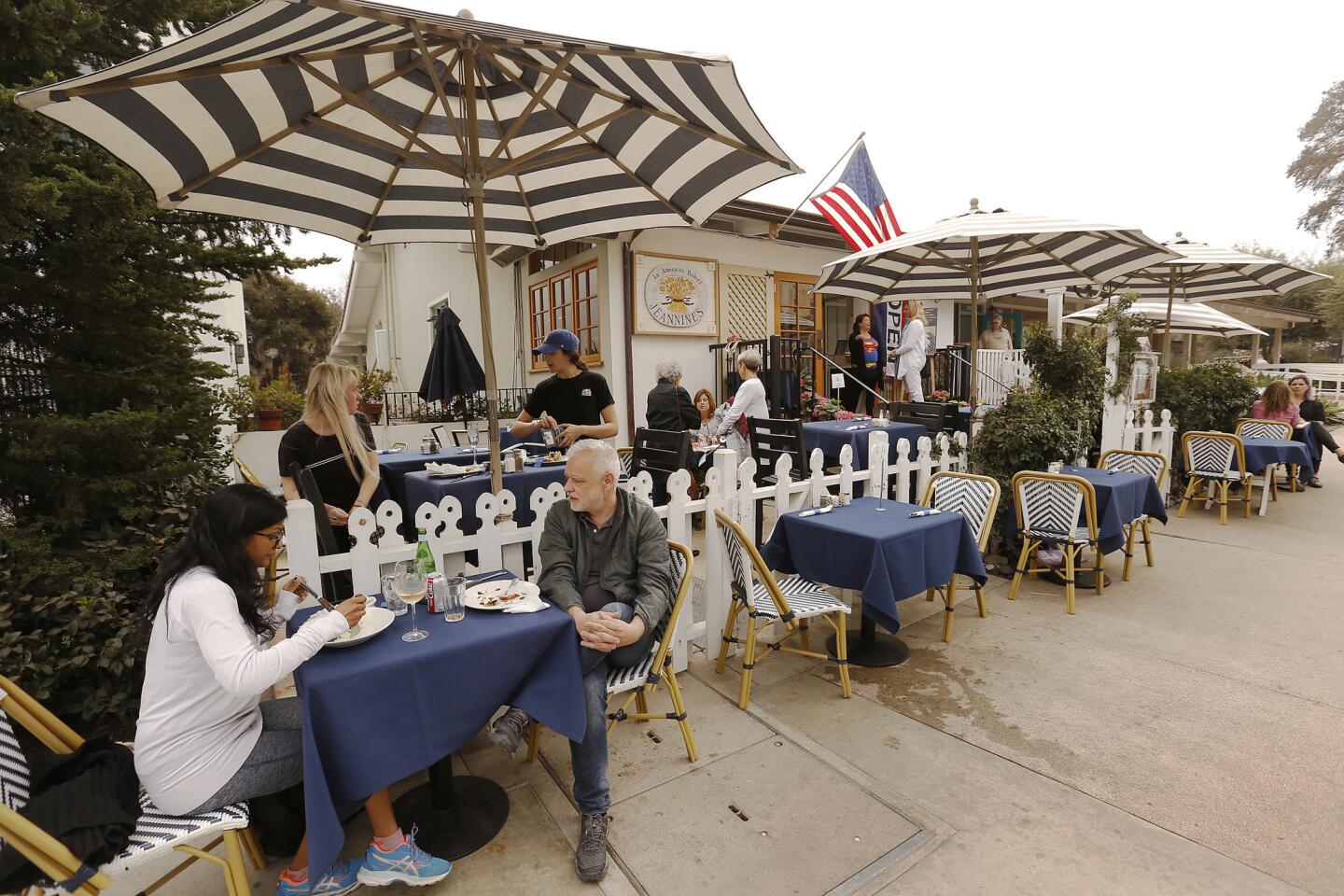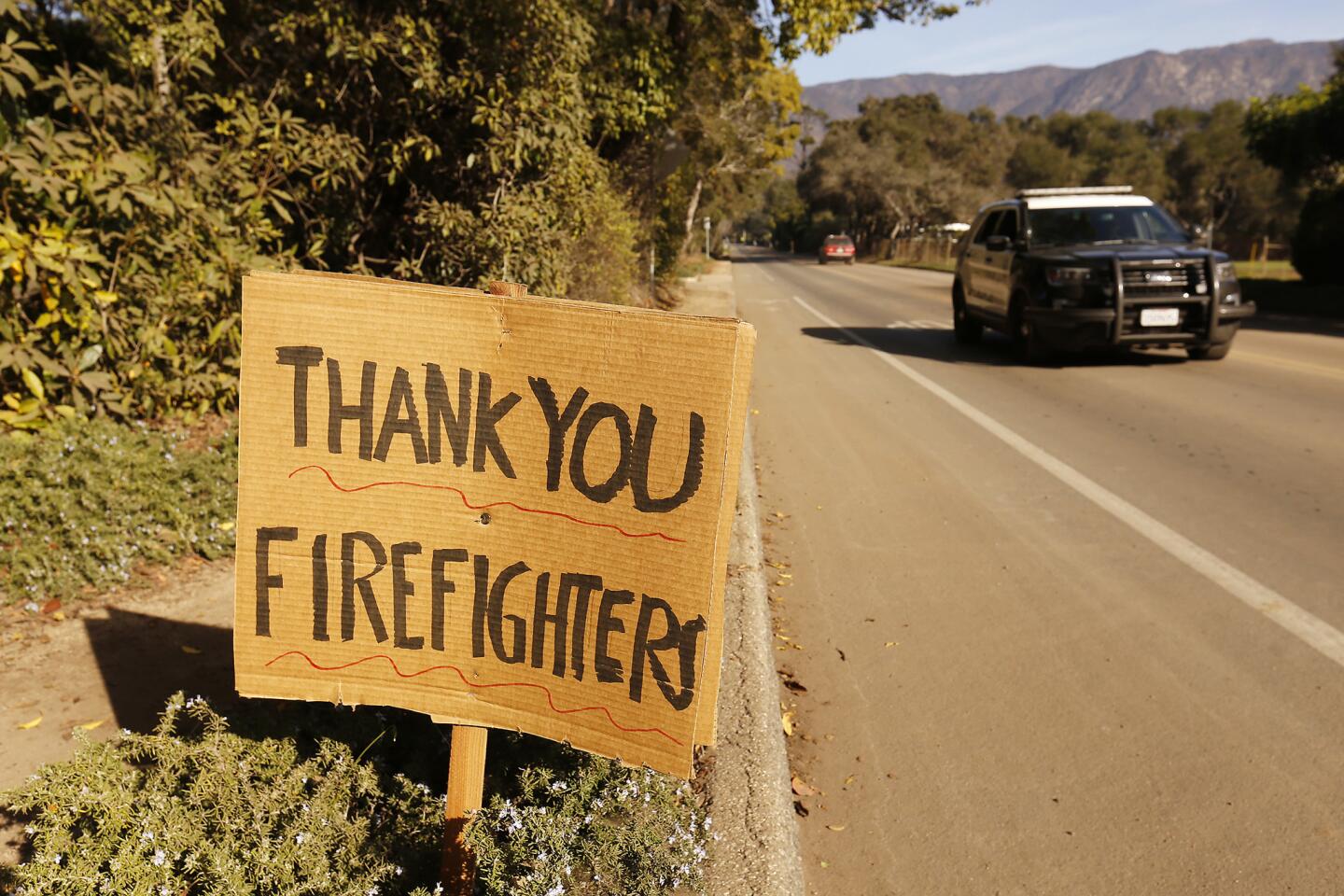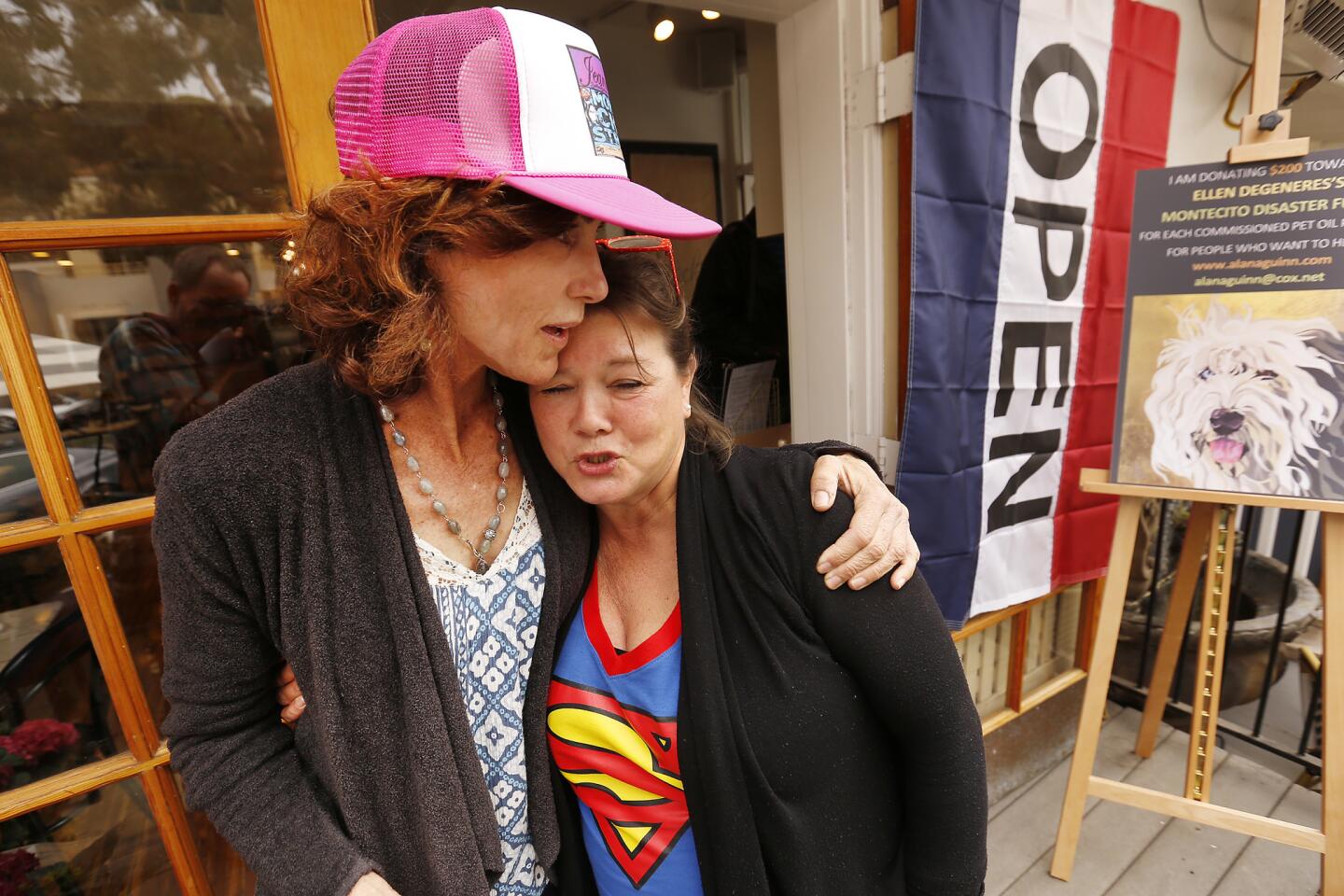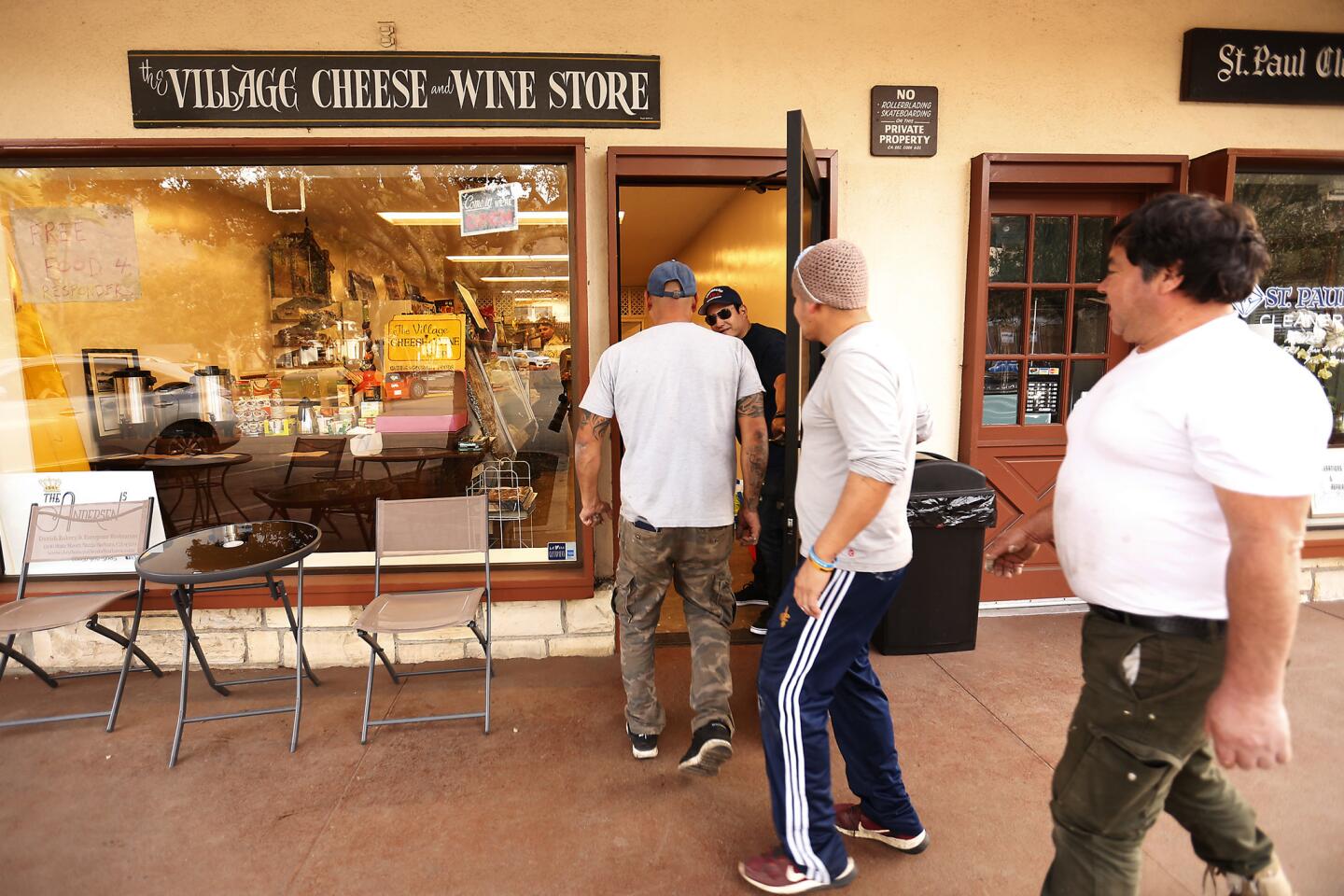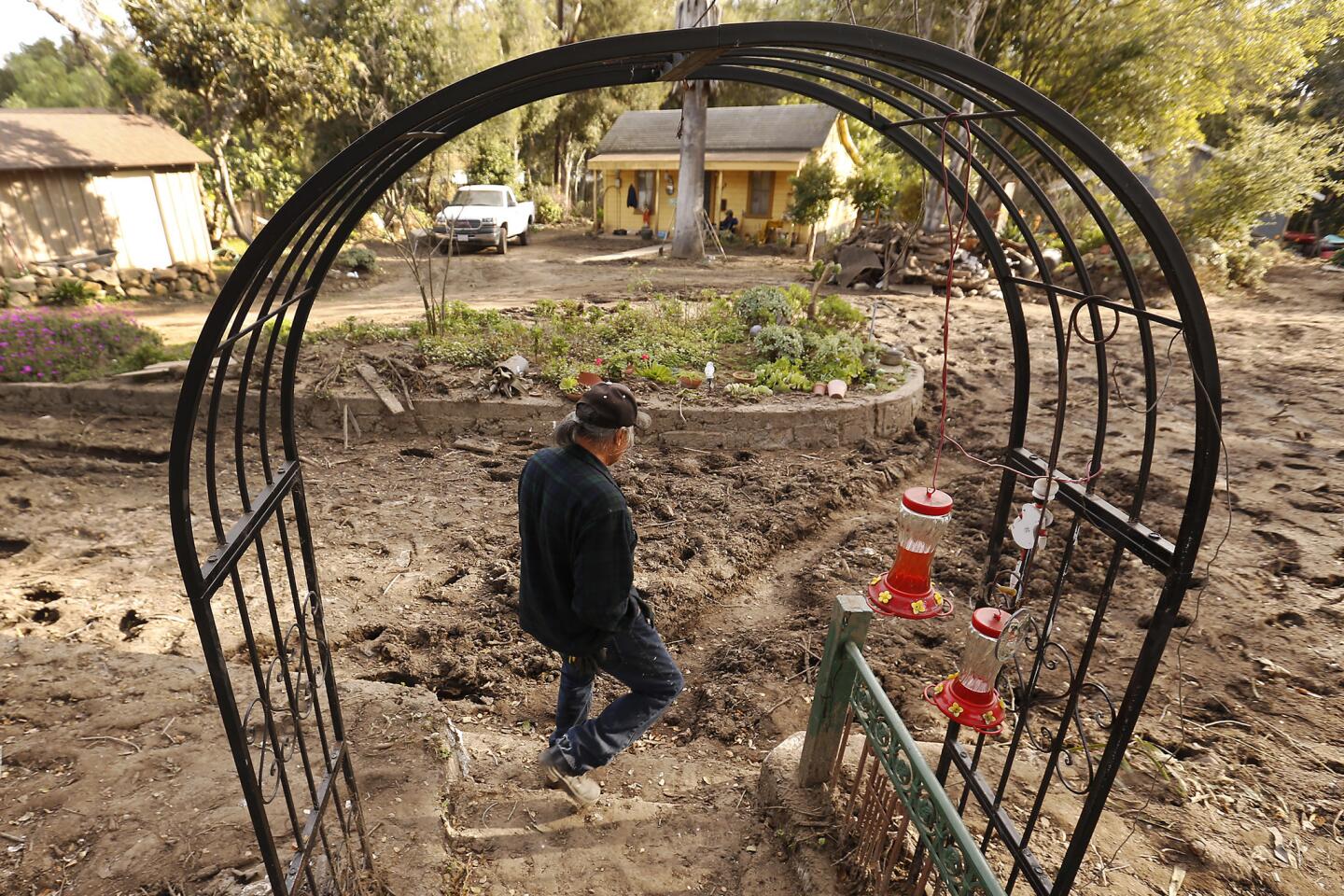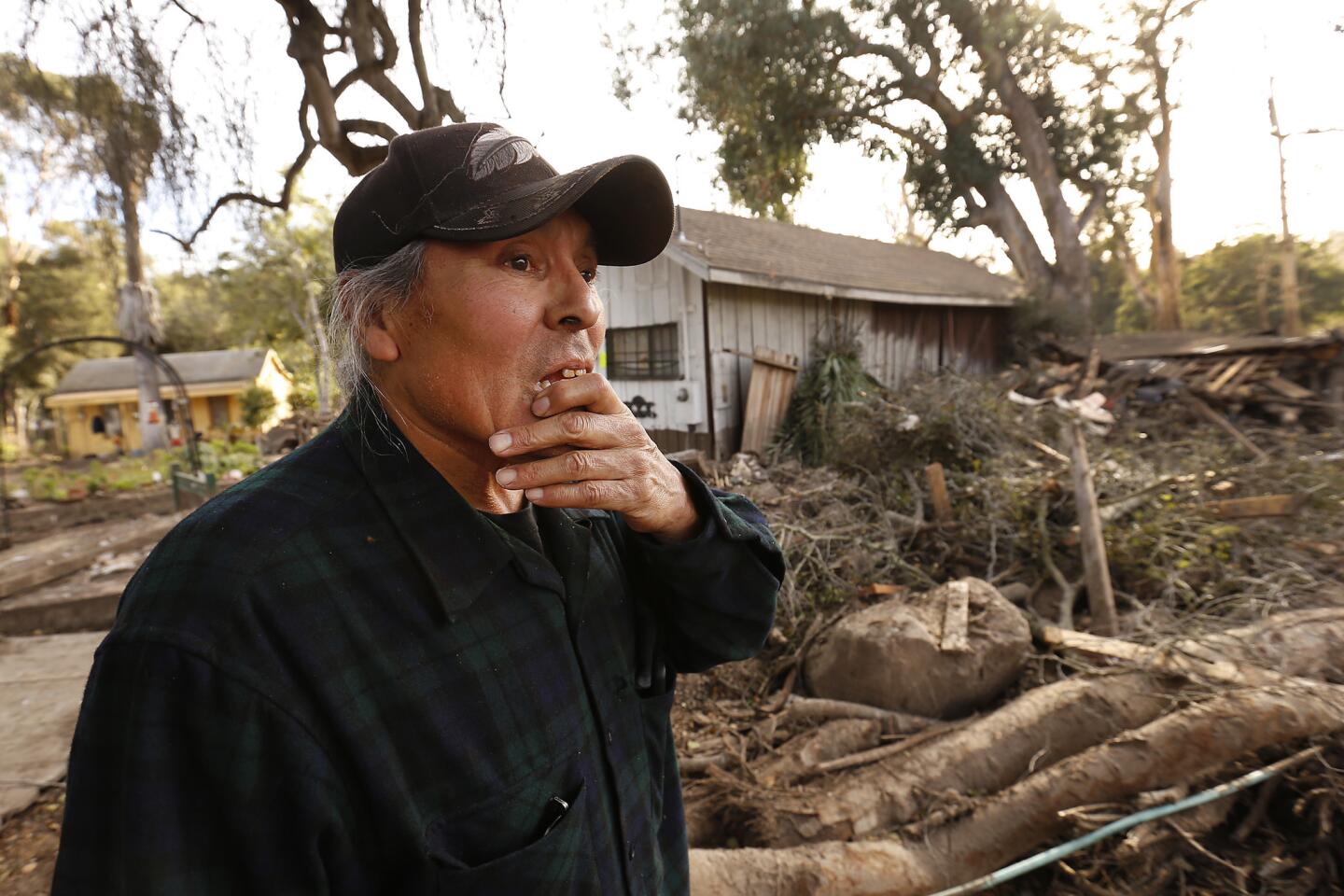Column: Amid the death and destruction in Montecito, a bakery becomes a center of recovery and hope

As evacuations are lifted and the freeway reopens, Montecito residents recall the mudslides that changed their lives and the town they live in.(Al Seib / Los Angeles Times)
- Share via
Reporting from montecito, calif. — Alison Hardey got to work early Friday morning, about 6:30, to prepare for the big day.
“People were waiting outside,” she said, and when the doors opened at 7 a.m., about 20 people stepped to the counter to order breakfast.
It wasn’t necessarily hunger that brought the locals back to Jeannine’s bakery and restaurant, which had been closed since the silence was shattered and the illusion of safety buried under walls of mud, ash, boulders and debris in the early morning hours of Jan. 9.
It was the need to know that something normal, familiar and comforting was possible again. The reopening of Hardey’s family-owned restaurant was a sign of hope and resilience.
Hardey placed spring flowers on the deck as a symbol of rebirth. Like a lotus coming up through the mud, she said.
There were hugs, tears and smiles, too.
Retirees Tom Konig and Bob Hirsch took an outdoor table, next to the disaster-relief bulletin board and volunteer sign-up sheet, with their coffee and cinnamon rolls.
“The most important thing is that I’ve never seen a community come together like this,” said Hirsch.
Across the street was the real estate office of 61-year-old Rebecca Riskin, who perished when a wall of mud crashed through her home.
“We both lost a dear friend,” Konig said of Riskin. “Her husband was on the roof of their house and got saved, but she got washed away.”
There will be no closure in Montecito, where people will never forget the thunderous violence of the mudslides that killed 21 people and ripped away homes.
“But I believe this is a fabulous community, and it’ll come back,” said Hirsch.
Jaime Hernandez, a 39-year-old waiter, came by to say hello to Konig, who stepped up as a donor when Hardey asked for help. Her restaurant — like other local businesses — took a financial beating and she temporarily lowered wages so she could keep everyone on the payroll. Konig was one of the locals who offered to cover the wage gap.
“Thank you,” said Hernandez, who along with his wife, a housekeeper, struggled to pay the bills over the last month.
Hernandez has a second job, at a restaurant in Santa Barbara, but with roads closed, he had trouble making it there from his home in Carpinteria. Konig said he was happy to help the waiter, his wife and their three kids.
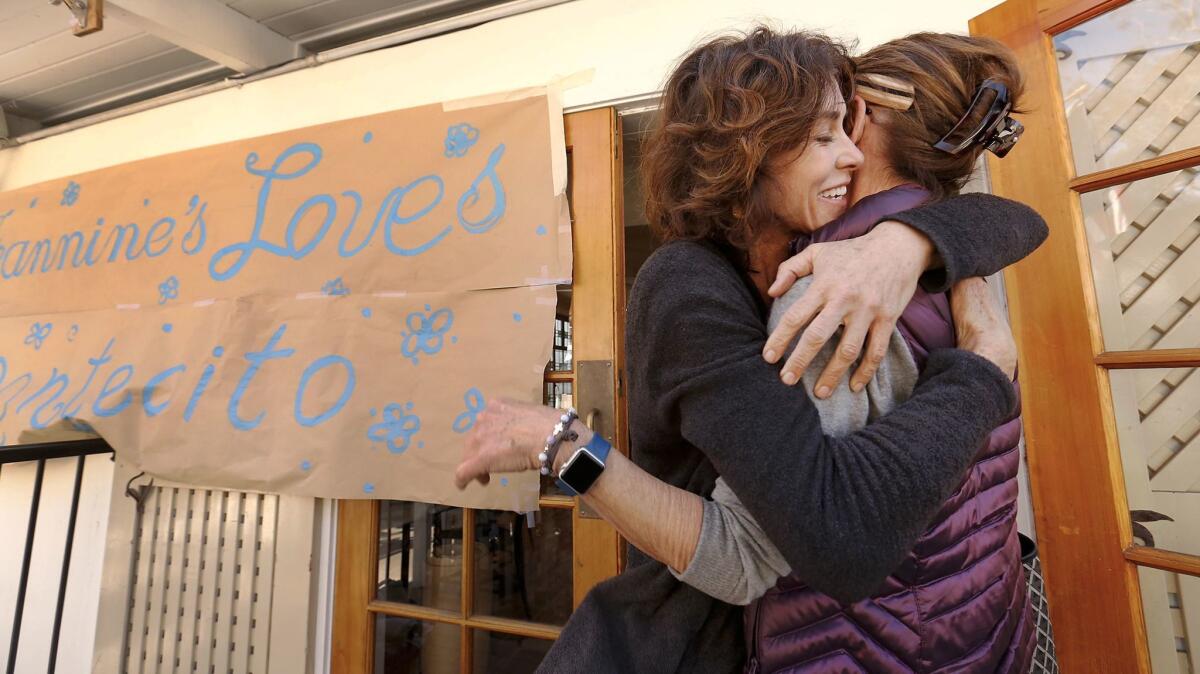
As we spoke, Hardey hugged a regular customer named Alan Keyser, who has spent the last month volunteering in search-and-rescue operations. Keyser teared up as he told me about a neighbor who lost her husband, stepfather and two children. Hardey hustled back into the restaurant, grabbed a napkin, and returned to dry his eyes.
“Since Dec. 4, it’s a blur,” said Keyser, referring to the Thomas fire that was driven by wicked winds and scorched thousands of acres in Ventura and Santa Barbara counties, engulfing homes and forcing massive evacuations.
“I have neighbors whose homes were damaged or destroyed, or they’re dead,” said Keyser, who once lived in Thailand and has served as a translator for the neighbor who lost four family members, a Thai woman. “I’ve had to deliver death notices for three people. I’ve had to take missing person’s reports. I saw a mother push a button at a crematorium to burn her child.”
Keyser and Hardey shared notes on a memorial service for the Thai family planned for Sunday. As they spoke, Keyser received a text message from his grieving neighbor, thanking him for helping her translate the speech she intended to make at the memorial.
Back inside the restaurant, Hardey asked longtime employee Juan Carlos Delgado, a barista, how he was doing.
Delgado smiled and thanked her, but his face betrayed the shock, sadness and disbelief that people still carry with them in Montecito. Delgado lives in Carpinteria and said that when the mudslides began, he tried to drive to Montecito to check on a friend.
“I couldn’t go in because the roads were blocked,” said Delgado.
His friend, Antonio Benitez, lost his wife and 3-year-old daughter. Antonio’s brother lost his wife and 10-year-old son.
Jeannine’s kept a door open during the weeks when the restaurant was closed for business. Hardey, who also lives in Carpinteria, brought coffee and cookies from her Santa Barbara restaurants so locals would have a place to gather, get the latest information on rescue efforts and find out how they could help.
As a young girl, Hardey said, she rode her yellow Schwinn 10-speed through the hills and along the coast, never oblivious to how lucky she was to grow up in such a place. She went on to Stanford in the 1980s as a tennis star and psychology major. When tragedy hit Montecito, Hardey thought back on an altruism class in college, and she decided to offer what little she could — a cup of coffee, a scone, a willingness to listen.
“People came in and I’d look in their eyes and say OK, I’ve only got a little bit, but it’s something,” said Hardey, whose offerings and kindly presence were a form of much-needed therapy. “And then they would launch into these stories. A woman who rafted out on a mattress with two boys but had to leave the puppy. Someone who almost gave up, until the firefighters knocked through the door. All these stories kept pouring out of them.”
She thought about the way the disaster had been a humbling equalizer, indiscriminately taking the lives of the wealthy and the workforce, and uniting one and all like never before.
“We live in one of the most beautiful places in the world and it has given us so much, and it’s our turn to give back, to build a better infrastructure, to build better waterways, to build a better alert system .… It was a woefully insufficient system for getting information out to people.”
Everyone has been reminded that on mountain slopes, there’s always vulnerability, Hardey said. The digging out will continue for months and the next rains may bring more danger.
“But this place is worth fighting for,” she said, “and maybe we can build something better.”
She took a seat at a table with Rick Lemmo, who works for Rick Caruso properties, which made a huge donation to Red Cross rescue operations. R. Peter Jackson, who owns the nearby Coffee Bean & Tea Leaf, also pulled up a chair.
A red bin sat before her and Hardey began going through a stack of envelopes collected by 93108FUND.org, which was set up by local residents to help cover the lost income of hourly wage earners who were out of work for weeks.
“Look at this,” Hardey said, opening envelopes and finding checks for hundreds of dollars.
“I’m going to give you a thousand dollars,” said Jackson as customers filed into Jeannine’s for coffee, or food, or just to be a part of the next step in Montecito’s recovery.
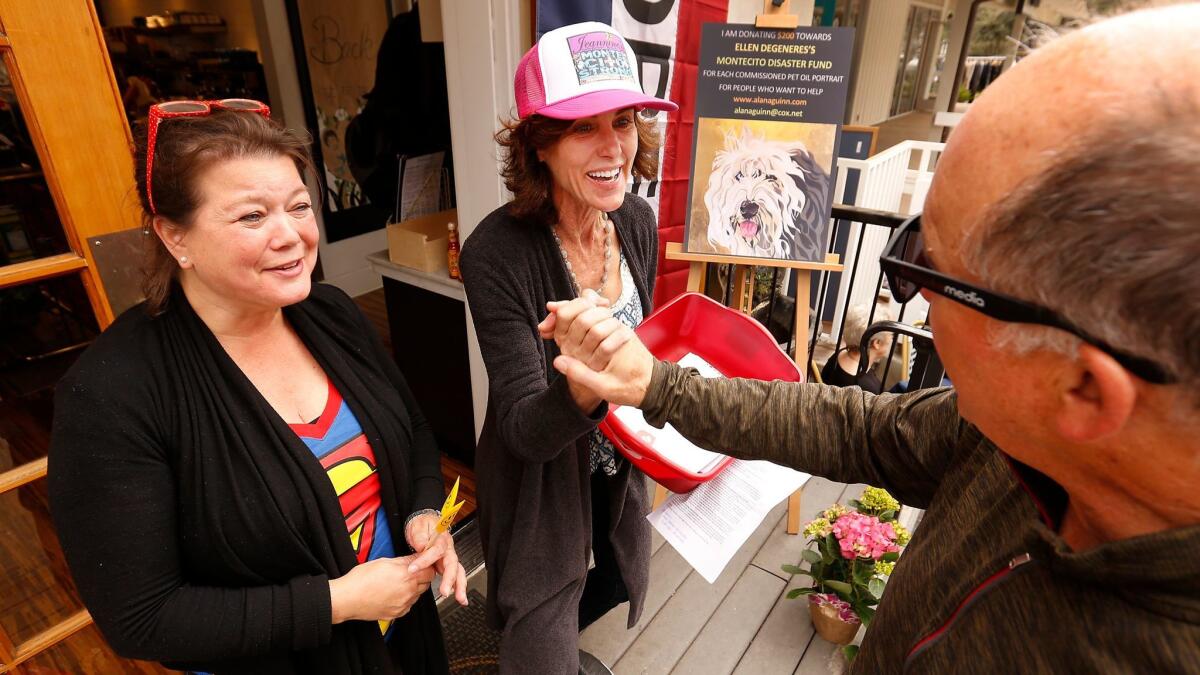
Get more of Steve Lopez’s work and follow him on Twitter @LATstevelopez
More to Read
Sign up for Essential California
The most important California stories and recommendations in your inbox every morning.
You may occasionally receive promotional content from the Los Angeles Times.

